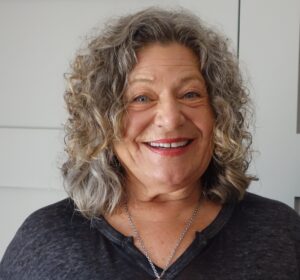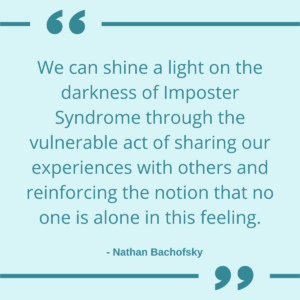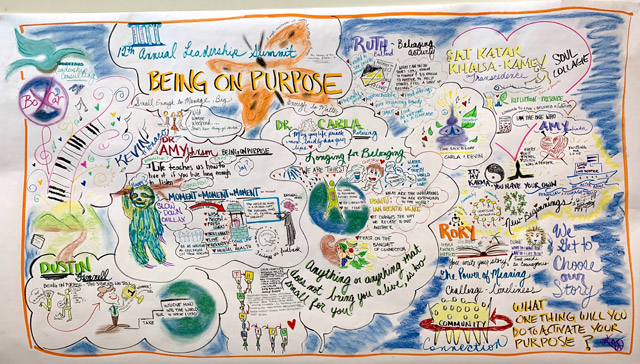The Imposter Syndrome – How to shift your self-doubting thoughts
Yikes! Surely, someone is going to recognize I really am not that smart, that I have been lucky – in the right place at the right time. How long will I be able to keep this secret? Can my family, friends, and colleagues see the real me? Yes, I have accomplished a great deal, but truly, it has all happened by chance.
These types of thoughts are common for professionals who are experiencing Imposter Syndrome, a phenomenon first identified in 1978 by psychologists Pauline Rose Clance and Suzanne Imes.
I recall going through my professional life and believing my opportunities and achievements resulted from what I called the “Mr. Magoo phenomenon”. If you aren’t familiar with this nearsighted cartoon character, let me explain. Mr. Magoo had a TV series in the 1960’s. His extreme nearsightedness led him into harrowing predicaments, yet always, just in the nick of time, Mr. Magoo would take the right action that would lead him to his desired outcome.
Well, I felt my career was a lot like Mr. Magoo. I would find myself not knowing which direction to take in my clinical career, in different leadership positions, and even in academic pursuits. But just as I was feeling most confused, a great option presented itself and the choice was made. As each of these “lucky” occurrences reinforced my belief in mitigating circumstances rather than my own talent, abilities and experiences, the notion of being an imposter was confirmed.
Research is replete with information on the Imposter Syndrome. In fact, did you know more than 70% of us experience feelings of being an imposter at some time or another? There are many highly accomplished people who admit they too have felt like an imposter. Maya Angelou, a three-time Grammy award winner, Tom Hanks who appears in more than 70 films and John Steinbeck a literary giant – all shared something in common at times during their careers – they described themselves as feeling like frauds. However, they were able to overcome these doubts to have amazing, successful careers.
So, what can the rest of us do to overcome imposter syndrome paralysis when it happens? I asked two of my colleagues at Thunderbird Leadership Consulting to share their wisdom and useful tips to navigate the perils of imposter syndrome.
Carla J. Rotering, a physician, coach and consultant, takes the approach of embracing the self-doubt.

Carla J. Rotering
“Imposter syndrome is nearly a universal phenomenon regardless of the ‘outer image’ we may see in others. Nearly everyone has almost certainly felt like a fraud at some point. It’s what we do, and it often creates the fear of being ‘found out’ and exposed. There are lots of suggested ways to manage that fear. I personally use a way that at first may feel a little harsh – and yet it is the thought that has proven the most useful for me.
“What if I simply say it is true? I am an imposter. We are all imposters. There is a standard out there somewhere called ‘perfect’ and that is the bar we have set for ourselves. But we are not perfect, any of us. The human condition is simply imperfect by definition. Any claim of perfection is therefore fraudulent.
“When I can recognize that – without judgment, but just with awareness of that FACT – I can tap into a more authentic, humble self. I can use my ‘imposter’ moment as a springboard to growth, learning, and fresh thought. I can let my ego off the hook and alleviate my own suffering and shame. I can lay that useless emotion aside, and then I can acknowledge what I don’t know, ask for assistance when I need it, and lean into the well of information, wisdom, and knowledge that will allow me to grow closer to that bar to which I aspire.
“I can realize I am human – that I am and (hopefully) always will be a work in progress.”
When Nathan Bachofsky experiences Imposter Syndrome, he turns to mentors to seek a reality check.
“I have wrestled with Imposter Syndrome at many points throughout my career and still experience relapses from time to time. A few years ago, I made a transition into a new role that required more of me in terms of leadership and responsibility. There were many challenges that came with this transition that left me feeling like maybe I was not ready or enough.

I found great comfort in the counsel of my trusted mentors. It helped immensely for me to open up about my challenges to then hear an esteemed mentor in my field say, ‘Oh yes, I felt that way many times,’ or ‘I am still waiting for someone to realize they hired the wrong person’ I thought, ‘Wait, THEY went through this? But they are so confident and successful!’
“We can shine a light on the darkness of Imposter Syndrome through the vulnerable act of sharing our experiences with others and reinforcing the notion that no one is alone in this feeling. I have found my experience with Imposter Syndrome to ebb and flow, but by talking openly about it and maintaining positive affirmations, my relapses can be drastically shortened.”
If you or any of your colleagues are experiencing feelings of being a fake or being lucky in your achievements, know that you are not alone and that you too can shift your thinking. If you’d like to talk to one of our team at Thunderbird Leadership Consulting, please feel free to reach out to us at info@thunderbirdleadership.com



